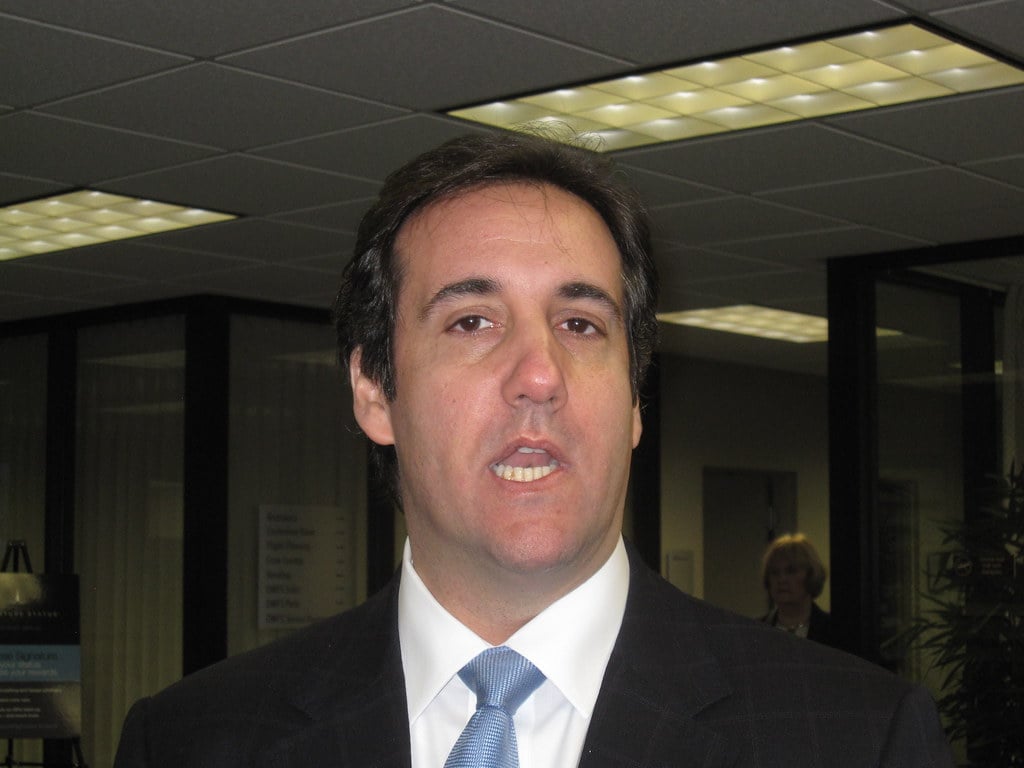Key Takeaways
- Michael Cohen calls Trump’s affordability push “gaslighting on a national scale.”
- Tariffs on imports clash with Trump’s claim that everyday goods now cost less.
- Latest data show grocery prices still climbing, contrary to the affordability message.
- Voter trust may erode if the president’s new talking point feels misleading.
Trump’s affordability focus under fire
Former Trump attorney Michael Cohen slammed the president’s new “affordability” message in a recent essay. Cohen argued that this talk hides the very policies that drive costs up. He pointed out that tariffs on imported cars, steel, timber and more have pushed prices higher. Yet, Trump insists prices are falling and that everyday life is getting cheaper.
Cohen wrote that Trump excels at rewriting reality. However, even by his standards, this “coupon clipper-in-chief” act feels absurd. He noted that while you stand in line watching your grocery bill rise, Trump claims you’re saving money. This disconnect, Cohen says, is pure gaslighting.
In addition, the former lawyer used a powerful image. He compared Trump to a pyromaniac who then lectures firefighters. Trump’s policies, Cohen argued, are the arson behind inflation’s blaze. Now the president wants praise for handing out cups of water. This, Cohen insists, is “affordability” in name only.
Why the affordability pitch feels like gaslighting
Cohen describes the affordability push as a national reality distortion field. He wrote that if you can’t fix a problem, deny it. If people doubt you, shout your claim louder. Then, have loyal followers echo it endlessly. In this way, even the most obvious facts can feel up for debate.
He added that Orwell would be stunned. A leader pouring gasoline on inflation and then demanding medals for lowering prices creates confusion. Meanwhile, average Americans juggle rising bills. They face higher home costs, pricier materials and steeper grocery tabs. Yet, they hear only how great things are.
Furthermore, Cohen criticized those who repeat the message without question. He called out enablers who amplify the slogan. They ignore the tariffs, supply shortages and labor shortages that fuel higher costs. Instead, they push a simplified narrative: Trump fights inflation; you pay less.
Therefore, the affordability story serves two goals. It distracts from failed policies. It also rallies a base that thrives on strong slogans. But for many voters, slogans don’t pay rent or fill shopping carts.
How economic data challenges the affordability story
Actual numbers tell a different story. Over the past year, grocery prices rose at their fastest rate in decades. Meat, dairy and fresh produce all cost more. While inflation overall may have cooled slightly, it remains above historical averages.
Tariffs add to the problem. When you tax imported steel or aluminum, production costs rise. Builders pass those costs on to home buyers. Auto manufacturers add fees to their price tags. Consumers then see higher costs at the dealership. Even small tariffs on everyday items like kitchen goods can add up.
For example, traders say a 10 percent tariff on furniture components raised retail prices noticeably. As a result, families spend more to set up homes. Similarly, taxes on foreign cars can add thousands of dollars per vehicle. Such policies conflict with the promise of greater affordability.
Moreover, experts warn that some costs move slowly. Even if tariffs come down, the price cuts may not show up immediately. Contracts, shipping deals and supply chains lock in costs for months. Hence, talk of falling prices may lag real-world data by a long stretch.
In short, the economic evidence undercuts the affordability claim. Americans feel the hit in stores and on bills. They pay the true price of trade barriers. No catchy slogan can erase that pain.
Voter trust at stake in the affordability debate
Trust plays a big role in politics. When leaders make bold promises, people expect results. If those promises ring hollow, frustration grows. Cohen’s essay highlights this risk. He warns that relentless spin can backfire.
Citizens may begin to doubt every claim. They might ignore genuine victories in the future. In addition, political opponents will use failed promises as proof of broken leadership. The affordability pitch could become a symbol of empty rhetoric.
On the other hand, if prices ever do fall, Trump’s team will credit his message. They will say it moved public sentiment and market expectations. Yet, voters will remember the gap between word and deed. That memory may shape opinions long after the next headline.
Ultimately, the debate over affordability reflects a larger struggle over truth in politics. Leaders can shape narratives, but they cannot change real costs. When people sense a mismatch, they speak out. In elections or town halls, voters demand honesty.
Frequently Asked Questions
What exactly is Michael Cohen criticizing?
He is calling out Trump’s new “affordability” message as misleading. Cohen argues that tariffs and policies raise costs, even as the president claims prices are falling.
How do tariffs affect everyday prices?
Tariffs tax imported goods like steel, cars and furniture. Producers and retailers pass these extra costs on to consumers, driving up prices for families.
Has Trump provided any proof that prices are dropping?
The latest data show grocery and other consumer prices remain high. While overall inflation has eased slightly, most Americans still see rising costs in stores.
Could the affordability pitch work politically?
It might rally the president’s base if they embrace the slogan. However, voters who feel the pinch may lose trust in future promises.
How can consumers protect themselves from rising prices?
Shoppers can compare prices, use coupons and buy seasonal items. In addition, tracking price trends helps in timing major purchases.
